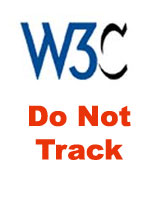 The impasse between industry and privacy advocates over Do-Not-Track browser settings has officially devolved into a game of chicken. This morning the Digital Advertising Alliance (DAA) industry coalition that governs the self-regulatory process issued guidance for members, saying it will not require them to honor DNT signals “fixed by the browser manufacturers.”
The impasse between industry and privacy advocates over Do-Not-Track browser settings has officially devolved into a game of chicken. This morning the Digital Advertising Alliance (DAA) industry coalition that governs the self-regulatory process issued guidance for members, saying it will not require them to honor DNT signals “fixed by the browser manufacturers.”
The move is a response to Microsoft’s decision to turn DNT “on” by default in the latest version of Internet Explorer and the ongoing debate it sparked in the World Wide Web Consortium (W3C) working group charged with overseeing how DNT is implemented. Despite heavy pressure from the IAB, ANA and others, Microsoft has not wavered on its position.
In its statement, the DAA said:
“It is not a DAA Principle or in any way a requirement under the DAA Program to honor a DNT signal that is automatically set in IE10 or any other browser. The Council of Better Business Bureaus and the Direct Marketing Association will not sanction or penalize companies or otherwise enforce with respect to DNT signals set on IE10 or other browsers.
Machine-driven do not track does not represent user choice; it represents browser-manufacturer choice. Allowing browser manufacturers to determine the kinds of information users receive could negatively impact the vast consumer benefits and Internet experiences delivered by DAA participants and millions of other Web sites that consumers value.” (Read the full statement)
IAB general counsel Mike Zaneis tells AdExchanger today’s guidance by the DAA is no different than it was in February, when the White House and FTC endorsed an industry self-regulatory plan that includes Do Not Track, and so should come as a surprise to no one. “For eight months we’ve had this position [that the consumer must select DNT]. The White House and FTC essentially signed off on this position. Nothing has changed.”
Zaneis said it had become necessary for DAA to clarify its position. “We’ve been getting tons of questions from our membership,” he said.
Meanwhile privacy advocates are seizing on this and other statements to suggest the DAA and its members are not approaching the DNT process in good faith. On its own blog, the privacy group Center for Digital Democracy accused advertising interests of hijacking the DNT process with “politically insensitive” arguments, including a proposal to add marketing to a “permitted uses” document even when users had turned Do Not Track on.
Since the W3C’s tech specs are not legally binding – either to browser makers or to the websites that respond to browser settings – there are unlikely to be immediate repercussions of the DAA’s position. However the move does raise the question of how the Federal Trade Commission will respond, if at all. The agency has said it will recommend privacy legislation if industry fails to rise to what it sees as a significant consumer privacy challenge in the online sphere. Until now the FTC has said it favors a self-regulatory regime incorporating a DNT signal, which publishers and other third parties would agree to honor under the supervision of the DAA.
With the DAA now encouraging its membership to “opt out” of the DNT signal from Microsoft IE and other privacy-aggressive browsers, the FTC will have to decide whether it can live with this tougher stance. People familiar with the agency’s thinking believe it is still sorting out its position. Chairman Jon Leibowitz is thought to want observable progress on the online tracking issue this year. He and his fellow Commissioners had thought that might be a self-regulatory program with Do-Not-Track baked in.
The FTC has not replied to a request for comment.











